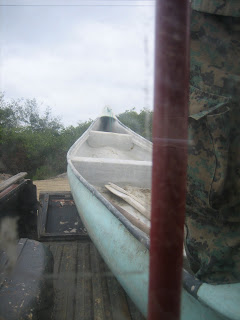
Aside from walking into a beehive on a playground when I was three, the bulk of my exposure to bees was Tommy Boy.
I thought their only utility was scaring bee-allergic policemen away from arresting you.
That was until last week, when I attended a nearly comprehensive, week-long beekeeping workshop in Riobamba (I wouldn't say completely comprehensive because using bees to avoid arrests wasn't covered). It was a great experience, and something that I look forward to exploring further.
The first thing the facilitators told us was the there wasn't a big demand for honey in Ecuador. I thought that was an odd way to start a conference about bees. Maybe they were already involved in the bee market and they didn't want anybody taking their market share. Or maybe they were telling the truth and there was really no market for honey in Ecuador.
So what were we doing there?
Well, it turns out that aside from honey production, bees produce several other products for human consumption and might be some of the best regulators of the environment. And they are some of the most fascinating creatures.
The first two days were spent in a classroom setting, covering the basics of safety, materials, management, problem-solving, and various health benefits. But for me, the most interesting session was about the pollination.
Somewhere around 90% of plants in the area need to be pollinated (well, there are plenty of pollinators, but bees are among the principal ones). They are integral in pollinating the native species and in maintaining the quality of the agricultural products as well. By pollinating the plants, they improve the quality of plants,o seed production, adaptability to the environment, and many other things. So even if one isn't producing honey, there are benefits to your crops or flowers to having the bees buzzing around.
The next day was spent in the field, visiting the hives to put in practice what we had been lectured on the day before. They recommended that we wear light colored clothing because bees associate dark clothes with the hives and feel as if you are invading their space. I don't really have any dark-colored long sleeves, so I turned my rain jacket inside out. Although I was making quite the fashion statement with my flipped rain coat, my friend made an even bolder one - pink rubber gloves.


He didn't plan on wearing them. He had bought them for his counterpart but when we were getting ready, it became clear the pink ones were too small for the counterpart. Luckily the bees weren't of the opinion that pink is the new black and left him unstung.
Overall, it was a relatively unpainful experience for the entire group. Just two people out of thirty were stung - even though the facilitators told us the bees were especially agitated.
After out practice, we learned about the various products that one can market. Bees produce a substance called propolisis that they put around their hive to prevent other animals from getting in. This substance can be used by humans to treat burns, increase fertility, might combat cancer, act as an antibiotic, ease bowel issues, cure some STDs, and protect your liver.
Another substance that the bees produce that can marketed is the royal jelly, what is used to feed queen bee larvae. It is believed to slow aging-related conditions (arthritis, baldness, decreased libido, heart disease, menopause, osteoporosis, high cholestorol, etc).
I felt that the conference gave me a great overview of beehive management. Now, I am excited to put it in practice and start some of that stuff at my site. I know of a few people near here who already have the hives going and will try to visit them very soon.



































